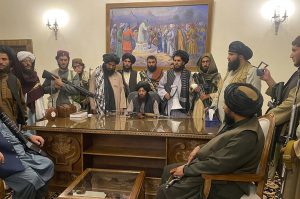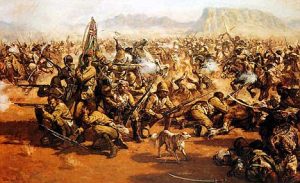
As a result of the withdrawal of the United States combat troops from Afganistan, the Taliban have managed to overrun the country. After 20 years, a reported $ 1,000,000,000 and the death of just under 6,300 American soldiers and contractors it is easy to see the effort as a total disaster.
Over the next weeks and months, there will be a number of articles, analyses, and commentary about the war, the withdrawal, and whether or not those people, and the tens of thousands of Afgan security forces and civilians died in vain. Much will also be written about Joe Biden’s decision to withdraw in the first place and if he should have waited until next winter.
The problem with most of the commentary we will read about the fall of Kabul, as with almost every topic under discussion today, is it will become politicized, partisan, and largely be written by people with little to no personal experience or expertise about the subject in question. In the case of Afghanistan, to have a considered opinion one would need first-hand experience in the country, familiarity with military operations, nation-building, and aslo the wider geopolitical challenges facing the region.
By the way, I include myself in this group as I have never been to Afganistan and spend most of my time teaching at a business school.
The good news is that there are a number of people who do have solid credentials and experience with the American engagement in Afganistan over the last 20 years. The bad news is that many of these people will disagree with each other and some will bask in their 15 minutes of fame to either explain what a disaster the Biden administration has caused or how this was the inevitable end of the story.
Merriam Webster defines epistemology as “the study or a theory of the nature and grounds of knowledge especially with reference to its limits and validity”. In plainer language, it’s about how do we know what is actually true?
What seems to be true in the case of Afganistan is that by beginning the withdrawal of U.S. forces on May 1st, the Taliban were emboldened to attack regional cities far from the capital. Faced with determined fighters and without the backup of U.S. ground forces, the Afgan army and police began to lose ground and then collapsed in the last week or so.

History can also help us understand what is going on although we need to be careful about bias and manipulation in the historical record. Without going into too much detail, England sent armies into Afghanistan three times in 1839, 1878, and 1919. During the last century, the country suffered from revolts, civil wars, and an eventual de-facto occupation by the former Soviet Union. Through all of these evolutions, I understand the country was really run at the local level by tribal chiefs and regional leaders, rather than the central government. In the modern era, no foreign power has been able to hold onto the country for very long.
This is the context in which the American-led attempt to build a modern nation with a capable army and functioning institutions needs to be looked at. In my view, this will also be the key to understand how the Taliban will manage their new responsibilities in the coming days, months, and years.
The challenge will be finding out what is really going on and deciding who to trust as the story unfolds.

